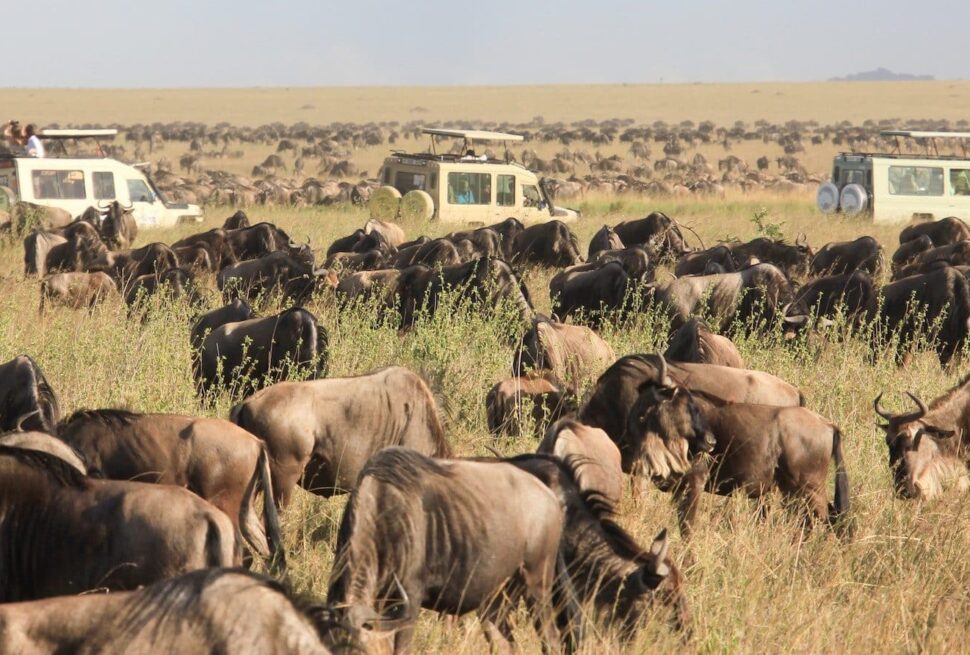Tanzania’s rainy season safari offers a unique opportunity to witness lush landscapes, dramatic wildlife encounters, and fewer tourists. While many travelers prefer the dry season, the wet months provide greener scenery, lower prices, and an exclusive safari experience.
But what should you expect when visiting Tanzania’s national parks during the rainy season? This guide covers everything—from weather patterns and wildlife behavior to the best safari destinations and essential travel tips.
When is Tanzania’s Rainy Season?
Tanzania experiences two rainy seasons:
🌧️ Short Rains (November – December)
- Light, sporadic showers
- Green landscapes with minimal impact on travel
- Excellent time for birdwatching
🌧️ Long Rains (March – May)
- Heavy rainfall, especially in April
- Some roads become muddy and inaccessible
- Fewer tourists, making it a private safari experience
Best time for a rainy season safari? The short rains (Nov-Dec) are ideal as the weather remains mild, and wildlife is active, while the long rains (March-May) are better for budget travelers seeking privacy and lush scenery.
Wildlife in Tanzania’s Rainy Season: What to Expect
🦁 Big Cats and Predators
During the rainy season, lions, leopards, and cheetahs remain active, especially in regions like the Serengeti and Ruaha National Park. However, since prey is more dispersed, predators may not be as concentrated around water sources as in the dry season.
🐘 Elephants & Herbivores
Elephants, giraffes, and buffalos thrive in the lush greenery. The abundance of food makes for healthy and well-fed animals, offering excellent photography opportunities in parks like Tarangire, Ruaha, and Mikumi.
🦩 Birdwatching Paradise
The rainy season is peak time for migratory birds. If you love birdwatching, parks like Lake Manyara, Udzungwa Mountains, and Nyerere National Park are filled with vibrant species such as flamingos, storks, and kingfishers.
🦓 The Great Migration: Calving Season
One of the biggest highlights of the rainy season in Tanzania is the Wildebeest Calving Season (January – March) in the Southern Serengeti. Over 500,000 wildebeest calves are born, attracting predators and offering dramatic wildlife action.
Best Safari Destinations in Tanzania’s Rainy Season
Not all parks are ideal for a rainy season safari. Here are the top recommendations:
1️⃣ Serengeti National Park 🌿
✅ Best for: Great Migration Calving, Big Cats
✅ Why visit? Lush scenery, newborn wildlife, fewer tourists
2️⃣ Ngorongoro Crater 🌋
✅ Best for: Diverse wildlife in a compact area
✅ Why visit? Animals stay inside the crater year-round, making sightings easy
3️⃣ Ruaha National Park 🦁
✅ Best for: Lions, Elephants, Remote Safari Experience
✅ Why visit? Stunning landscapes, excellent predator sightings, fewer visitors
4️⃣ Nyerere National Park (Selous Game Reserve) 🐊
✅ Best for: Boat Safaris, Hippos, Crocodiles
✅ Why visit? Unique water-based safaris, high wildlife density
5️⃣ Tarangire National Park 🐘
✅ Best for: Elephants & Birdwatching
✅ Why visit? Beautiful baobab trees, large elephant herds
6️⃣ Lake Manyara National Park 🦩
✅ Best for: Flamingos & Tree-Climbing Lions
✅ Why visit? Incredible birdlife, lush green forests
7️⃣ Mikumi National Park 🦓
✅ Best for: Easy Access, Diverse Wildlife
✅ Why visit? Great for short safaris, close to Dar es Salaam
8️⃣ Udzungwa Mountains National Park 🌿
✅ Best for: Hiking, Waterfalls, Rare Monkeys
✅ Why visit? Unique rainforest experience, great for nature lovers
Pros & Cons of a Rainy Season Safari in Tanzania
| Pros ✅ | Cons ❌ |
|---|---|
| Fewer tourists, more privacy | Some roads may be muddy or inaccessible |
| Lower safari lodge and tour prices | Animals spread out due to water availability |
| Lush, green landscapes – perfect for photography | Some camps may close during peak rains (March-May) |
| Incredible birdwatching & Wildebeest calving season | Increased chances of mosquitoes – pack repellent |
Essential Travel Tips for a Rainy Season Safari
✅ Choose the Right Safari Vehicle – Opt for 4×4 Land Cruisers as some roads get muddy.
✅ Pack Smart:
- Waterproof jacket & boots
- Light, breathable clothing for humidity
- Binoculars for birdwatching
- Insect repellent for mosquitoes
✅ Stay in Lodges Instead of Tented Camps – Some mobile camps close during heavy rains, so opt for permanent lodges or tented camps with solid foundations.
✅ Hire an Experienced Safari Guide – A knowledgeable guide knows the best spots to find wildlife, even during rainy conditions.
Final Thoughts: Should You Visit Tanzania in the Rainy Season?
A rainy season safari in Tanzania offers a unique, lush, and peaceful adventure. If you love fewer crowds, breathtaking scenery, and lower prices, it’s an excellent choice.
While some areas may be challenging to access, choosing the right parks, accommodations, and experienced guides will make your wet season safari unforgettable.




